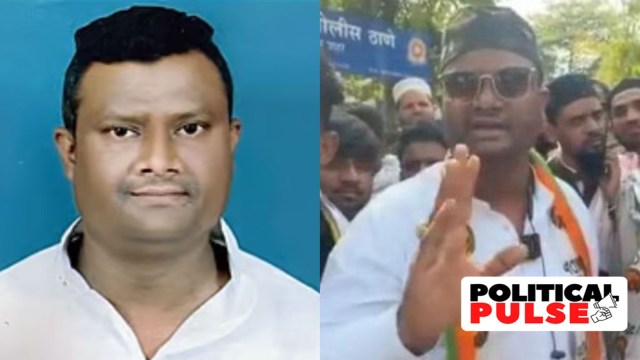Nagpur violence: Dubbed ‘mastermind’ by police, Fahim Khan member of outfit that backs moderate Islam
Khan, who unsuccessfully contested the Lok Sabha polls against Nitin Gadkari, has long been associated with Minorities Democratic Party, formed as a response to the rising influence of other Muslim sects
 Fahim Shamim Khan Khan is a businessman by profession and a resident of Nagpur, who has been associated with the MDP for a decade. (Source: Express Photo)
Fahim Shamim Khan Khan is a businessman by profession and a resident of Nagpur, who has been associated with the MDP for a decade. (Source: Express Photo) The alleged “mastermind” of the violence that erupted in Nagpur following a protest demanding razing of the tomb of Emperor Aurangzeb is a worker of the local Minorities Democratic Party (MDP), Fahim Shamim Khan.
The MDP is the political front of the Mohammad Hamid Engineer-led Imaan Tanzeem, which has in the past expressed concerns over the growing influence of the Wahhabi sect, seen as more hardline among Muslims. In 2015, Engineer was a part of the delegation of Muslim leaders who met Prime Minister Narendra Modi to discuss the concerns of the Sunni community.
The Tanzeem specifically advocates for the cause of political empowerment of the Ahle Sunnatul Jamaat and preservation of traditional Sunni practices.
The MDP, which was founded in 2009 in response to the rising political influence of other Muslim sects, goes by the slogan: “Jo Sufi santo ki baat karega, woh hee Bharat par raj karega,” (He who speaks of Sufi saints will rule over India).
However, politically it hasn’t had much success. Khan, who was arrested Tuesday, is a businessman by profession and a resident of Nagpur, who has been associated with the MDP for a decade. He contested last year’s Lok Sabha polls as the party candidate from Nagpur, against Union Minister Nitin Gadkari, securing just over 1,000 votes and finishing seventh among 29 candidates.
The MDP maintains that Khan had gone to the Ganesh Peth Police Station to seek action against those involved in the alleged desecration of holy verses during Monday’s protest, but was arrested inside. “Everyone in the country has the right to protest. The Constitution allows you to burn the effigy of Aurangzeb and we do not have a problem with that. But why desecrate holy verses? Fahim along with a delegation of our workers went there to request action against those involved in the desecration. We are shocked that the police have booked and arrested him instead of taking action against the perpetrators,” party leader Alim Patel said.
Since its inception, the MDP has organised various protests calling for action against those who have insulted the Prophet and has contested several elections across India.
The MDP subscribes to the Barelvi school of thought, a social reform movement that emerged in the late 19th century in Bareilly, the hometown of its founder Ahmed Raza Khan which emphasises reverence for Prophet Muhammad and the Sufis, and ascribes to shrine-based religious practices. Numerically, the Barelvi school represents the majority of Indian Muslims but does not enjoy political prominence like the Deobandi sects.
Khan has publicly spoken about creating political alternatives for Muslims in the past. “The situation of Muslim voters within the Congress is like that of a professional dancer at Indian weddings. He may groove and light up the atmosphere of the ‘baraat (wedding procession)’ but once it reaches the wedding venue, he is not even invited inside,” Khan had said in the run-up to last year’s Assembly polls, while urging Muslims to create an alternative for themselves.



- 01
- 02
- 03
- 04
- 05




























